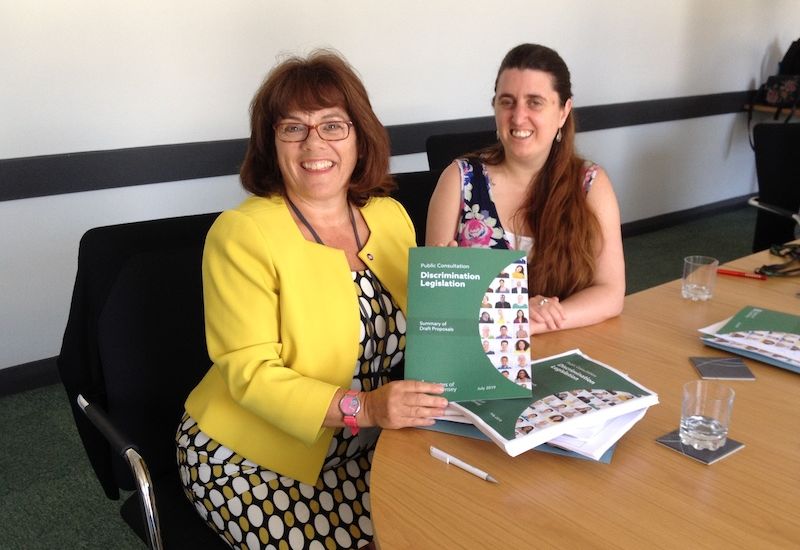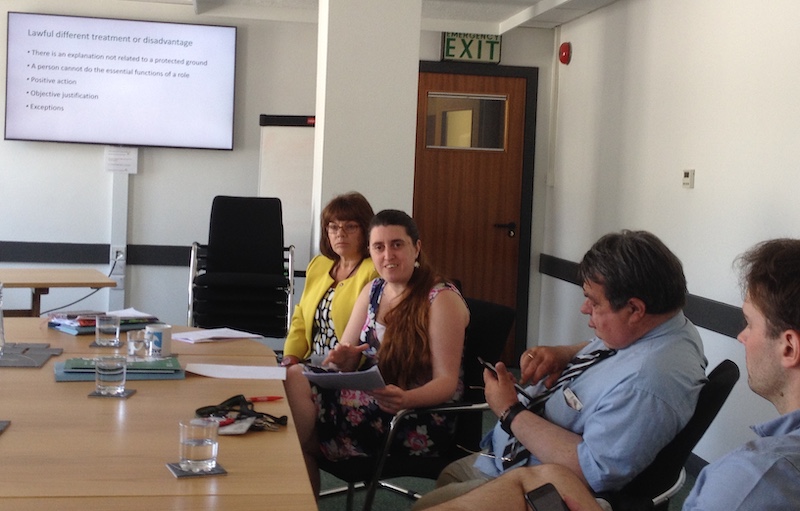

Employment & Social Security is asking for public feedback on its draft proposals for how a multi-ground discrimination law will work in practice.
The Committee is seeking the views of the community on matters such as: • The definition of disability • Designating discrimination as a civil offence • Making it easier for families with children to find rental accommodation • How the new law should be phased in • Exceptions where different treatment is not considered to be unlawful.
ESS has sought expert advice on international best practice and local stakeholders to develop its proposals over the last 18 months.
"We are hoping for responses from a wide range of people. Anyone could experience discrimination and we want to hear from individuals about their hopes for the future of this legislation," said Committee President Michelle Le Clerc. "It is also really important that we hear from the business community because they will have new duties under the legislation to make sure that their services and staff management are inclusive and non-discriminatory."
"We know that the business community might need some time to prepare, and some of the questions we ask are about timing. This is really important work and I would encourage people to go onto gov.gg and find out more.”

ESS Committee members, including Emilie Yerby, speaking, addressed the media yesterday on their draft proposals.
Deputy Emilie Yerby said Guernsey is one of the few developed nations not to have discrimination legislation, which is an "uncomfortable" reality that needs addressing.
"It is unfortunate that we have lagged behind on providing these fundamental protections for our citizens," she said.
The scope of the proposed legislation is vast and goes beyond just discrimination in the workplace - it also encompasses service providers, education, accommodation, clubs, bars and other public sector services.
It aims to confront both direct and indirect discrimination on grounds such as disability, religious belief, trans status and sexual orientation and any discrimination arising from association with people of such status.
ESS has also laid out proposals for an 'anticipatory accessibility duty' that will require employers, organisations and businesses to think about how they can meet the needs of disabled people - with a lead-in period of two years for training and ten years if physical adaptations are required.
Deputy Yerby sought to allay any concerns about over-regulation, saying that, for example, the legislation would not force businesses to employ people who genuinely cannot fulfil the essential requirements of a role.

ESS are planning to set up an Equality & Rights Organisation and put in place a tribunal system as a "last resort" if complaints cannot be resolved without recourse to formal proceedings.
There is a long list of exceptions to the law suggested, which can be found at gov.gg/discriminationconsultation. The purpose of these is to ensure that the law does not get in the way of common sense.
Deputy Yerby also said they were setting out realistic expectations for what small businesses could do to make them as disability-friendly as possible.
"There is a vein of proportionality running through our proposals – we are not saying you are going to have to make adjustments that are too expensive or impractical to do."
The plan is to take final proposals to the States by April next year, with legislative drafting and approval of the new legislation by 2021.
Members of the public can find out more and ask questions at a presentation by Deputies Le Clerc and Yerby on Monday 15 July at 19:30 at the Princess Royal Centre for the Performing Arts. It will also be live streamed on the States of Guernsey Facebook page.
The Committee has published a range of documents - including a questionnaire -on the States website, which go into different levels of detail. These have been translated into Portuguese, Polish and Latvian, while the Guernsey Blind Association is working on an audio version. The consultation will be open until 30 September 2019.
Comments
Comments on this story express the views of the commentator only, not Bailiwick Publishing. We are unable to guarantee the accuracy of any of those comments.